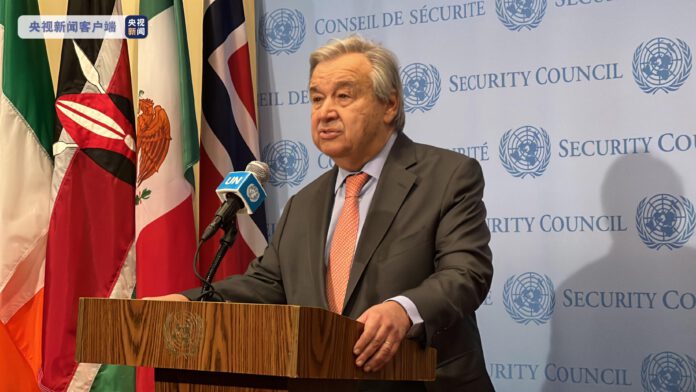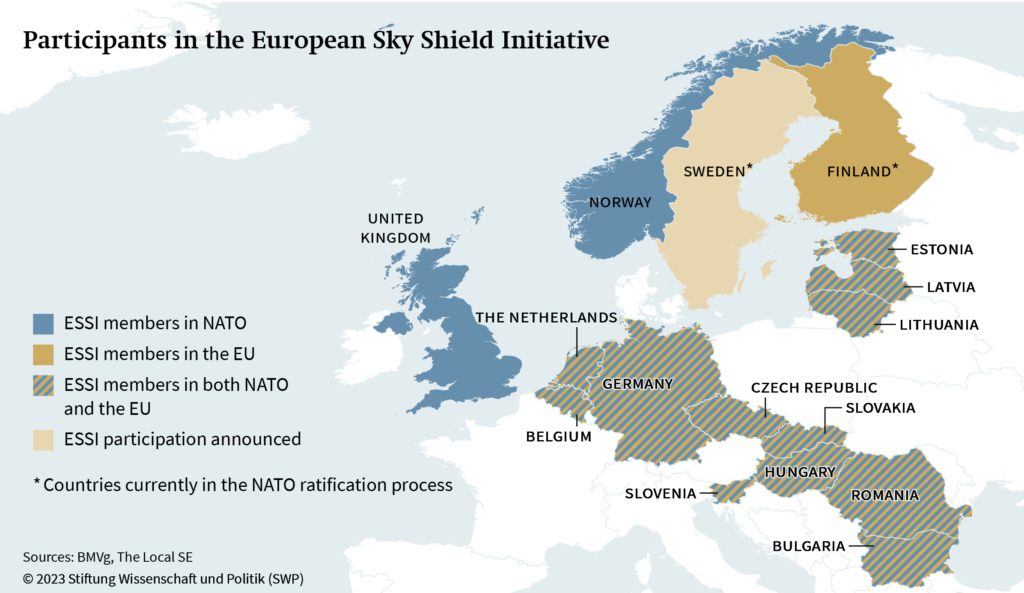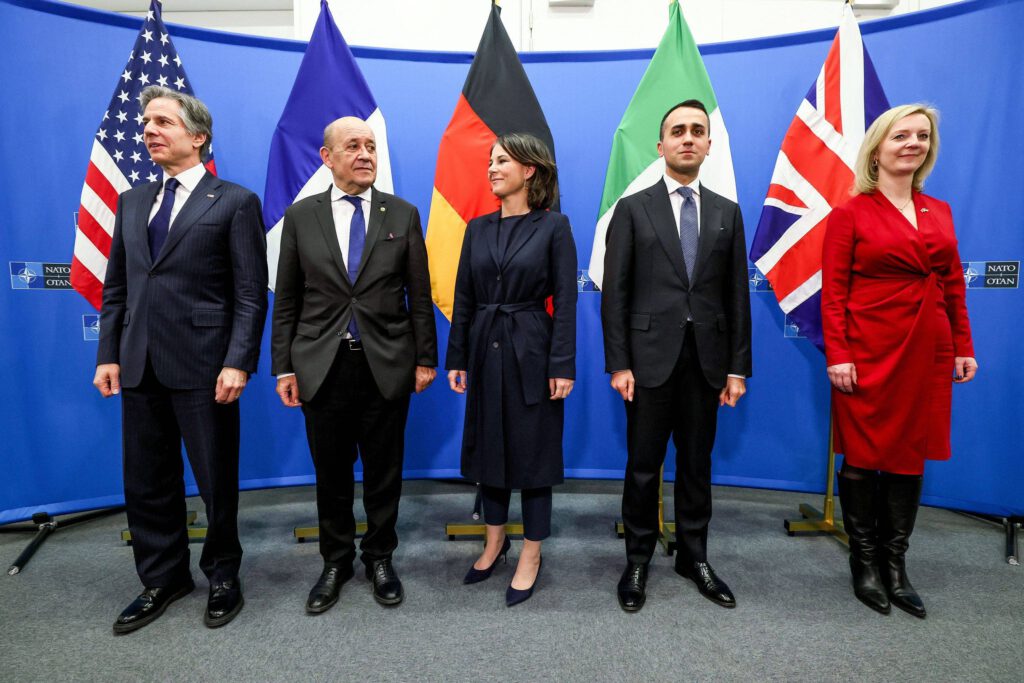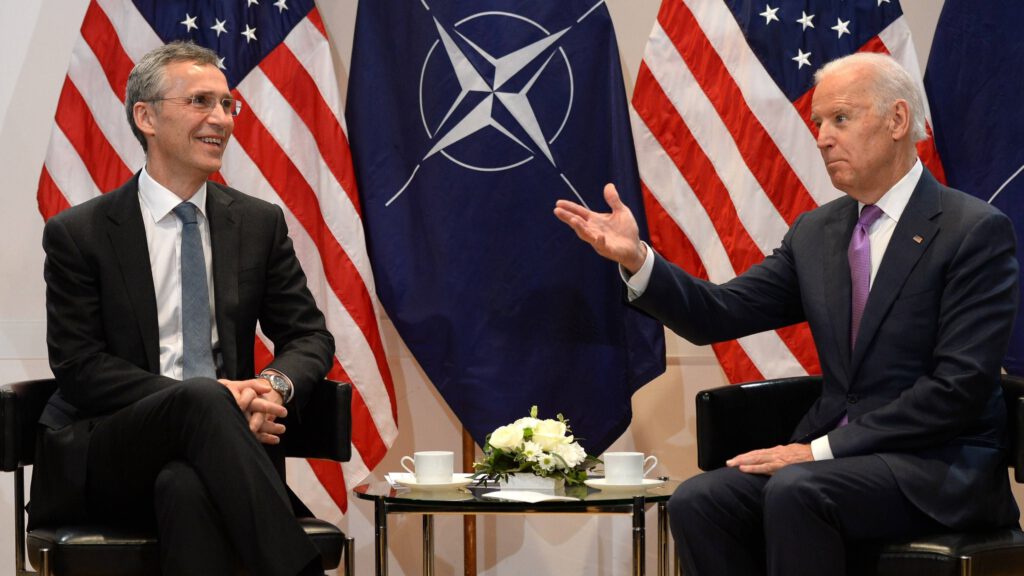
The 59th Munich Security Conference (MSC) was held in the southern German city of Munich from February 17 to 19 2023. The MSC is an important annual forum in the field of international strategy and security, and this year it focused on the situation in Ukraine.
The MSC saw a flurry of statements from major European countries. Britain has been active in calling for military aid to Ukraine. Prime Minister Al-Sunak urged that arms be provided to Ukraine, arguing that recent supplies of equipment such as main battle tanks would be transformative. Germany is anxious about taking on more military assistance. Chancellor Scholz called on capable allies to speed up tank deliveries to Ukraine. France maintains a calm posture, with President Macron saying that the time is not yet ripe for dialogue with Russia, and a lasting peace in Europe cannot be achieved without Russia. The meeting attempted to coordinate positions within NATO and among Western countries on military assistance to Ukraine, but no broad consensus was reached.

The EU needs to build strategic independence in the face of various crises and the prospect of declining U.S. support. However, European countries cannot even agree on basic issues for months. The 27 EU member states have divergent views on many issues. For example, the Baltic states and Poland see the United States and NATO as indispensable security guarantees, while France prefers European defense autonomy.
After the escalation of the Russia-Ukraine conflict, the EU adopted the Versailles Declaration and a Strategic Compass for Security and Defence to accelerate the construction of security and defense integration. However, till now, the EU is still struggling with its strategic autonomy in the field of security and defense.
The Russia-Ukraine conflict has had a huge negative impact on the overall security situation in Europe. At present, the European security landscape is seriously unbalanced. Before the escalation of the Russia-Ukraine conflict, Europe has tried to establish a relatively balanced security pattern, the NATO-led collective security, the organization for security and cooperation in Europe represents a coordinated package of cooperative security. With the escalation of the Russia-Ukraine conflict, Europe’s original security pattern is unsustainable, Russia is excluded from the original cooperative security framework, NATO becomes the dominant European security affairs.

The urgent security and defense needs have prompted Europe to increasingly tighten itself with NATO and deepen its dependence on the United States. French President Macron reiterated his intention to promote the European Sky Shield Initiative which was launched by Germany in October 2022, and its members currently include 15 NATO members as well as Finland and Sweden. However, the air and missile defense systems used in the initiative to enhance Europe’s autonomous defense capabilities will primarily use existing U.S. and Israeli technology.
In the long run, such a decision increases Europe’s dependence on the United States. The Russian-Ukrainian conflict highlights the importance of the U.S. military presence in Europe and the U.S. security guarantees for Europe.

The day after the closing of the MSC, U.S. President Biden made a surprise visit to Ukraine, announcing at a joint press conference with Ukrainian President Zelensky that the United States and its Western allies have provided Ukraine with weapons and equipment such as 700 tanks, thousands of armored vehicles, 1,000 artillery pieces, more than 2 million rounds of artillery, more than 50 sets of long-range artillery, and anti-ship and anti-aircraft systems. Biden also announced that the United States will provide Ukraine with a new package of military assistance worth $500 million.
The core purpose of Biden’s surprise visit to Ukraine is to achieve the unification of the U.S. domestic political cycle with its policy toward Ukraine. From the domestic political level, in 2024, the U.S. will usher in presidential elections, and the Biden administration does not want the Russian-Ukrainian conflict to become a constraint for the Democratic Party in the U.S. bipartisan strife. From the perspective of international strategy, the U.S. needs to use the Russia-Ukraine conflict to consolidate and mobilize the Western camp, while achieving a balance of strategic goals against Russia and China. In general, the U.S. sees the Russia-Ukraine conflict as a strategic tool, and behind the political statement of “supporting Ukraine”, the U.S. is using Ukraine to achieve its strategic goals. Thus, it seems that the Russian-Ukrainian conflict will continue in the short term, and in the long term, uncertainty will increase, and the future will be increasingly influenced by U.S. domestic politics and foreign strategy.

The precondition for Europe to solve its security dilemma is to promote strategic autonomy – Europe must to a certain extent get rid of the influence and restrictions imposed on it by the U.S. strategic objectives, start from its own interests and positioning, rationalize the origins and reasons for the progress of the Russia-Ukraine conflict, reconstruct the relationship with Russia and the neighboring countries in eastern Europe, find the basis for peaceful coexistence with Russia, and minimize the influence and interference of external forces. On this basis, Russia and Europe can enhance mutual trust, address common security concerns and restart communication and cooperation mechanisms in economic, energy and social areas. This is undoubtedly a long-term and arduous task for Europe, which needs to be taken forward from now on.
(Source: Münchner Sicherheitskonferenz, Stiftung Wissenschaft und Politik, Xinhuanet)



